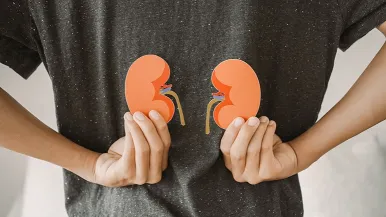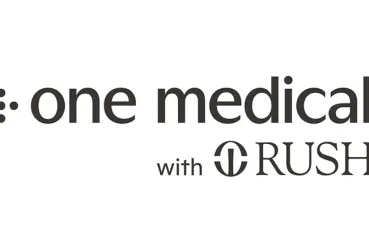More than 35 million adults in the U.S. have chronic kidney disease, and just a fraction of them even know it. And the number of cases is growing.
Kidneys are vital organs that filter waste from the blood and produce hormones. Left untreated, CKD, a form of kidney failure, allows toxins to build up in the body and can lead to other health problems, like heart disease and stroke. It also can progress to end-stage renal disease, which requires dialysis treatment or a kidney transplant to live.
The key, doctors say, is to look for symptoms of CKD early. “In many instances, there is treatment available for kidney disease but in only a few instances, unfortunately, is there a cure,” says Vasil Peev, MD, a nephrologist at Rush. “That’s why it’s important to intervene early and engage in prevention efforts for the disease.”
Here are six tips to follow to help keep your kidneys healthy:
1. Know the signs and symptoms.
Unfortunately, the symptoms of kidney disease aren’t always noticeable, and 40% of people with severely reduced kidney function are not aware they have CKD. Therefore, it’s crucial to know whether you might be at risk.
Risk factors of CKD can include the following:
- Diabetes
- Obesity
- High blood pressure
- Heart disease
- Age (60 and older)
- Family history of CKD
Peev recommends keeping up with your annual physical exams with your primary care provider, who may order bloodwork or urinalysis tests that can detect kidney disease in its early stages and help slow down its progression.
2. Maintain a healthy diet and weight.
Research shows that a kidney-friendly diet and regular exercise, may help protect your kidneys from the risk factors that can lead to kidney damage.
“A kidney-healthy diet is low in sodium and carbohydrates and includes lots of fruits and vegetables,” Peev says. “If you follow this type of diet consistently, it can help prevent weight gain and avoid obesity, high blood pressure and diabetes, which are major risk factors for kidney disease.”
Additionally, incorporating 30 minutes of exercise each day, such as walking, jogging and biking, among other activities, as well as drinking plenty of water, can also keep your kidneys healthy.
“Dehydration reduces blood flow to your kidneys, which can damage them, so make sure to drink enough water throughout the day — around eight glasses,” Peev says.
If you need additional support, Peev suggests working with a dietitian who can provide a kidney-healthy diet fit for your individual needs.
3. Monitor your diabetes, blood pressure and cholesterol levels.
In the United States, diabetes and high blood pressure are the leading causes of kidney failure.
“Diabetes is vastly driven by obesity, which can cause high blood pressure and cholesterol,” Peev says. “And diabetic kidney disease is the No. 1 reason for developing end-stage CKD, so it’s important that you have it under control.”
Further, a study by the National Kidney Foundation found that people with high cholesterol are twice as likely to develop CKD.
If you are overweight and can lose weight through changes in your diet and activity level, Peev says you can significantly reduce your risk of CKD.
4. Don’t overuse over-the-counter drugs.
Nonsteroidal anti-inflammatory drugs (NSAIDs) are a specific group of over-the-counter pain relievers that include ibuprofen and aspirin, that may cause an increased risk of sudden kidney failure and progressive kidney damage.
“Many common over-the-counter drugs contain certain toxins that affect our kidneys’ ability to filter them, and an excess amount can be dangerous,” Peev says. “Also, a lot of people already have preexisting kidney damage but are unaware. So, their ability to clear the toxins is even more limited and only adds to the potential damage.”
The National Kidney Foundation recommends limiting the use of these over-the-counter drugs to no more than 10 days for pain relief or more than three days for reducing a fever. If your pain or fever lasts longer, consult with a doctor.
5. Limit your alcohol intake.
Drinking too much alcohol can harm many parts of the body, including the kidneys.
The National Kidney Foundation warns that regular heavy drinking affects the kidneys and their function and doubles the risk for kidney disease. Consuming more than three drinks a day for women and more than four drinks a day for men is considered heavy drinking, according to the foundation.
“A small amount of alcohol — one or two drinks every now and then — tends not to have any serious effects,” Peev says. “But it’s important to remember that drinking in moderation is key.”
6. Quit smoking.
Smoking tobacco slows the blood flow to important organs, such as the kidneys, and can increase the risk for kidney disease. Smoking can also make medications used to treat high blood pressure less effective, and if poorly controlled, can lead to kidney disease.
A study found that a group of participants who went through a smoking cessation program saw less of a decline in their kidney function when compared to a group of active smoker participants.
Although quitting smoking for good can be a challenge, a smoking cessation program can help. When you are ready, talk to your primary care provider, who can provide a referral as you work to maintain the health of your kidneys.




